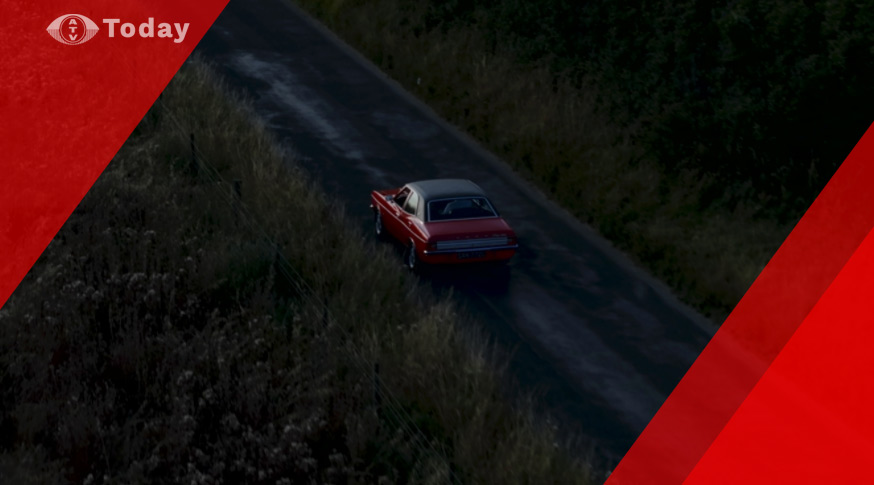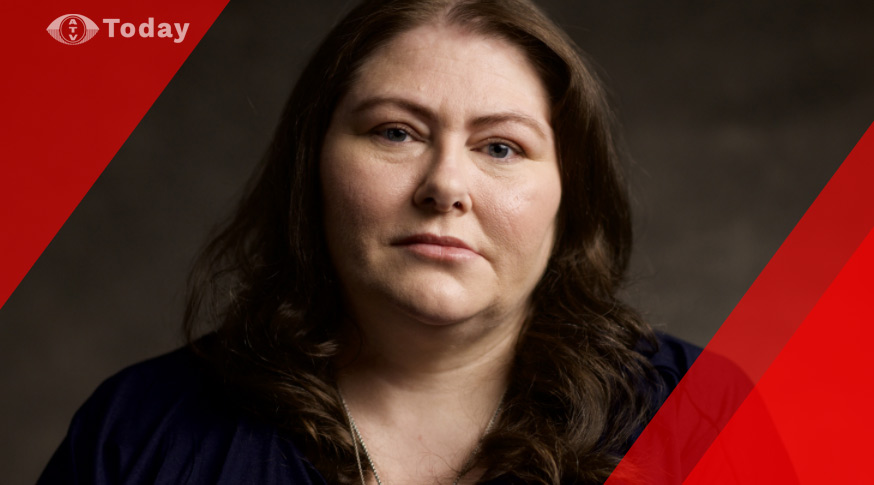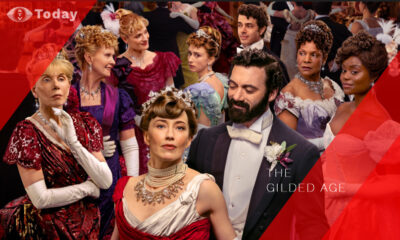
Sky
Rachael Watts talks about forthcoming ‘The Girl Who Caught a Killer’
Sky Original documentary, The Girl Who Caught a Killer will air on Sky Documentaries this weekend…
The two-part series tells the shocking story of Rachael Watts, who breaks her thirty-year silence to share her story for the first time on camera revealing how she survived a brutal abduction and assault, leading to the revelation of a devastating miscarriage of justice.
“There are a number of reasons why I chose to share my story publicly now. Firstly, Russell Bishop died and I no longer felt afraid of him identifying me, finding me, contacting me, etc. Secondly, I was tired of simply being referred to as ‘the seven-year-old victim’. I wanted people to realise there was a person behind that footnote. Thirdly, my mental health has deteriorated significantly, and I hoped that by no longer carrying this burden alone it would help me to heal and move forward without carrying this weight by myself anymore.” – Rachael Watts
Seven-year-old Rachael Watts was roller-skating outside her home when she was kidnapped by paedophile Russell Bishop, bundled into the boot of his car, and driven to a remote part of the South Downs. Bishop assaulted her, strangled her, and left her for dead. Miraculously, Rachael survived.
Four years earlier, the ‘Babes in the Wood’ murders of schoolgirls Nicola Fellows and Karen Hadaway had shocked the nation. Despite the evidence, the killer Russell Bishop walked free – free to proclaim his innocence and, sickeningly, lead a hunt for the “real” killer. Rachael not only survived the appalling attack on her but was able to pick out her attacker from a police lineup. Bishop was found guilty of her attempted murder, and Rachael’s identity remained a secret.

“There wasn’t a single event that I could refer to that would be a turning point and drove my decision to tell my story on camera. There were a number of factors that convinced me that now was the time to show my face, lose my anonymity and tell my story. A key factor was that Russell Bishop is dead, and I no longer have the fear that he might find some way to enact some form of revenge on me, that may seem very irrational but it was something I was very afraid of, Whether that fear was rational or not. I think that it is the accumulation of a number of factors over a long 30+ year period that have led me to this point.” – Rachael Watts
Now, in a two-part documentary series, Rachael breaks her thirty-year silence to share her story for the first time on camera, revealing the long-term impact of her trauma, and her role in helping convict a murderer. Alongside Rachael’s story, family members of Nicola Fellows describe their thirty-year struggle for justice, leading to a sensational re-trial.
Featuring the personal accounts of family, witnesses, police detectives, and with previously unreleased police footage and photos, the series gives unparallelled insight into one of the most notorious crimes in British history, how a second crime exposed the real killer, and how the testimony of one little girl finally caught a killer.
Talking about revisiting the events of her childhood during the making of the documentary Rachael noted, ‘I don’t have many memories of my childhood, either before or after that day. However, that day itself is burned into my brain. I feel very numb and disassociated regarding the events on that day. Looking back over old footage and reading over the relevant articles and documents that were obtained as part of the documentary production, I felt as though I was looking at another person rather than feeling any direct connection or emotions when looking at my younger self. I did find some of the information discovered in this documentary to be very interesting, particularly information that I had not heard prior to this process.’
She also pondered how it felt at such a young age, to help ensure justice was finally served and how she coped afterwards saying, ‘Given my younger age the broader concept of justice and some of the finer detail around this were not something that entered my mind. I knew right from wrong and did my part to the best of my ability and what was asked from me at the time. My parents did the best they could to shelter me from everything that would make me appear different in anyway and ensured I grew up as normal as could be given the circumstances. Looking back and in hindsight I am happy that I survived and was able to protect others from harm.’
“My parents did the best they could to shelter me from everything and try to give me as normal a childhood and teenage years as possible. That said, I did have some anger issues and I rebelled. Given that many teenagers also rebel even when they have not been through a traumatic event such as the one I did, it is hard to say how much of this rebellion is standard teenager behaviour and how much is down to any trauma that resulted from the attack. In my early adult life, I moved around a lot and felt that I was essentially invisible. When I settled down and the police victim support team were able to find me and get back in touch, this feeling of invisibility disappeared and left me feeling vulnerable again.”
The Babes in the Wood Murders were the murders of two nine-year-old girls, Nicola Fellows and Karen Hadaway, on 9 October 1986, by a 20-year-old local roofer, Russell Bishop in Wild Park, Moulsecoomb, Brighton, East Sussex, England.[1] Bishop was tried and acquitted in 1987. The case remained open until 10 December 2018, when Bishop was found guilty of the murders in a second trial. The investigation into the two girls’ murders is the largest and longest-running inquiry ever conducted by Sussex Police.

“I think what caused the biggest shock, was the concept of ‘lifetime sentence’. When I was little and was told that he was going to prison for a lifetime sentence, I believed that I would be forever safe from him. Sometime in my teenage years I learned that this ‘lifetime sentence’ meant that he might be out after 15 years. This sparked a range of emotions including anger.
“I recall being at school when I learned this, in the hallway near the library. Another feeling that was strong within me was anger at what appeared to be relative comfort for Russell Bishop’s prison time. He reportedly had a TVin his cell, and other creature comforts. As a young child this didn’t feel like punishment to me, I feel as though I’m the one living with a lifetime sentence instead.” – Rachael Watts
Russell Bishop died from cancer on 20 January 2022, at the age of 55. He had been rushed to hospital, from HMP Frankland in County Durham, after his condition deteriorated. Former friend Geoff Caswell, who used to go fishing with Bishop, described him as a habitual liar. Caswell said, “He was a typical lad around town that time [1980s]. He’d grown a moustache and he had this car he’d race everywhere and he was always telling lies, trying to big himself up. He was only around 5′ 5” tall and weighed around eight stone, and I think he suffered from ‘little man syndrome’.”
Talking about parts of the documentary that were particularly difficult—or unexpectedly cathartic—to talk about Rachael noted, ‘The thing that I had the biggest problem with, and the hardest time processing was one of the photographs that was taken by the police. This was in the first set of photographs that were taken by them, before I was cleaned up and the blood washed away. That photo of the seven-year-old girl with blood smeared all over her face and around her mouth was hard to process. I felt disassociated from her, again as if it were not me but someone else.
‘Much of that day feels like a real-life nightmare, and that photo seemed to make it more real, while at the same time not feeling like it was me.’
When asked ‘What would you say to other survivors of childhood trauma who may still be living in silence?’ Rachael said:
“I keep being told that ‘you should be kind to yourself’ and ‘you survived because you’re a fighter’. I am not sure how much either of these would help people. Russell Bishop apparently selected me ‘to shame and belittle me’, which are words that ring in my mind and make me even angrier, I had nothing to do with him before then, I had done nothing wrong, I had not harmed him. It was not my fault.
“I would tell anyone else who is a survivor of childhood trauma that the first thing they need to understand is that it was not their fault and they are not to blame and not to be ashamed as I was, I would also tell them to not be deterred when seeking help. I was given pamphlets and bounced from place to place when I sought help. You should keep pushing on until somebody actually listens and takes you seriously. There are numbers you can call if you think you could be a danger to yourself or have intrusive thoughts. After going through many doctors, I now have one who listens to me and even checks in on me from time to time without being prompted.”

On how sharing her story may have shaped the way she sees her life and identity today, she stated, ‘This is still very much a work in progress, and I still suffer with survivor’s guilt to this day, and while I have not seen the results as yet I remain hopeful that in taking control and telling my story that I can move on from this past and the identity of merely the ‘seven-year-old’ footnote.’
When asked about her hopes for the future, both personally and in terms of what this documentary might achieve, Rachael Watts summarised,
“I just want to live a normal life, and be in control of my ability to leave the house and go places again. I need to keep my targets small and not expect too much too fast, or so I am told. I am naturally a very impatient person, but am trying to manage my expectations.
“When I was in my teens I used to write stories and song lyrics, I loved art and was always naturally creative, unfortunately my attack did mean I didn’t do as well at school as I wish I had, but I did do well in the sciences and arts, my dreams back then were to eventually have a career as a medical professional something like forensics, but I think I would have struggled to remain impartial in some situations. Now my wish would be to work with animals as a veterinary nurse but I’m not sure how achievable that would be given my current circumstances and lack of better qualifications.
“So, I remain a jack of all trades but master of none. My new garden has been wonderful, and I enjoy seeing it change throughout the year and there is always something new each day which has brought me a small sense of peace. I had lost all the joy that doing things I loved brought me and I hope that I will be able to continue finding that joy again.”
The Girl Who Caught a Killer will air on Sky Documentaries and Sky Showcase at 9pm on 25 May. Also streaming with NOW.








